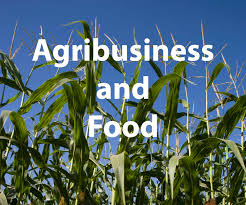Is your company experimenting with improving products, developing new products, packaging or  processes and wondering if this work might be eligible for R&D funding? It’s a great question to ask as it is estimated that less than 50% of Agriculture and Food Processing companies are claiming the research and development funding they are eligible for.
processes and wondering if this work might be eligible for R&D funding? It’s a great question to ask as it is estimated that less than 50% of Agriculture and Food Processing companies are claiming the research and development funding they are eligible for.
The reason so many companies are missing opportunities is that they don’t understand the broad definition of research and development by the Canadian government. In this article we’ll provide you with several examples of R&D funding and an overall SR&ED checklist that can help you identify potential opportunities that you might be neglecting.
It’s interesting to note that many of the examples of eligible R&D funding in agriculture and food processing are projects that most companies consider part of their routine business. For these companies, once they begin to capitalize on this funding source, it could mean ongoing R&D funding to support future R&D, not to mention adding to their company’s competitiveness and bottom line.
Agriculture
As populations increase, farmers are advancing agriculture techniques. Changes in farming techniques that increase crop yield or alter equipment to increase production and safety are often eligible for R&D funding.
Other examples of R&D eligible activities that are common include attempts to make your farm more environmentally-friendly. For example, developing alternatives to harmful chemicals, using equipment that requires less energy, or improving irrigation techniques and routines for reduced water use.
Finding a practical use for traditional waste (manure, groundwater, or leftover livestock feed) can receive funding, such as altering equipment to be powered by unused grains or corn.
Food Processing
Food processing companies may be involved in a variety of eligible activities including, developing an existing product to meet consumer needs of gluten-free, sugarless, and nut-free foods.
Experimenting with ingredients to extend a product’s shelf-life or to improve flavour and nutrition or conducting research on the impact of a process, such as your storage or shipping techniques are included in some R&D programs as well.
Vineyards and Breweries
In trying to create the next must-have wine, there’s a good chance you altered your usual process. Experimenting with soil types, grape selection, and water control are everyday activities that qualify for tax credits.
Funding is also available for breweries. Examples of eligible projects include changing the bottling process for better efficiency, experimenting with hops to improve flavour, or developing new packaging to reduce materials.
Plants and Greenhouses
Everyday greenhouse operations could also lead to your business receiving funding. Modifying seed combinations, experimenting with temperatures, and determining how to better grow plants that are non-native to your area are examples that may qualify.
Various types of research may also be eligible, such as examining how different temperatures, lighting, and irrigation routines impact growth.
R&D Funding Checklist for Agricultural and Food Processing Companies
- The following is a checklist of common activities that may be eligible for R&D funding.
- Modifying processes to improve labour efficiency
- Developing new products or packaging
- Attempting to make products more consistent
- Conducting experiments to reduce the impact of crop diseases
- Extending the shelf life of products
- Developing a healthier product
- Developing custom equipment
- Developing new crop varietals where there is uncertainty of success in the given growing conditions
- Reducing the environmental impact of activities
- Experimenting with organic/biological processes
- Experimenting with unique combinations of chemicals to improve crop production
- Developing more efficient material handling processes
Next steps
If you think your agriculture or food processing company might be conducting some of the above activities, we invite you to contact us for a free consultation to learn how to capitalize on this opportunity.


